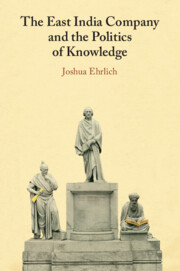Book contents
- The East India Company and the Politics of Knowledge
- The East India Company and the Politics of Knowledge
- Copyright page
- Dedication
- Contents
- Acknowledgments
- Note on the Text
- Abbreviations
- Introduction
- 1 Warren Hastings and the Idea of Conciliation
- 2 Conciliation after Hastings
- 3 The Politics of the College of Fort William
- 4 Scholar-Officials and the Later Company State
- 5 Education and the Persistence of the Company State
- Epilogue
- Bibliography
- Index
4 - Scholar-Officials and the Later Company State
Published online by Cambridge University Press: 22 June 2023
- The East India Company and the Politics of Knowledge
- The East India Company and the Politics of Knowledge
- Copyright page
- Dedication
- Contents
- Acknowledgments
- Note on the Text
- Abbreviations
- Introduction
- 1 Warren Hastings and the Idea of Conciliation
- 2 Conciliation after Hastings
- 3 The Politics of the College of Fort William
- 4 Scholar-Officials and the Later Company State
- 5 Education and the Persistence of the Company State
- Epilogue
- Bibliography
- Index
Summary
Attempts to alter the balance between the Company’s two characters would only intensify in the decade-and-a-half after Wellesley’s departure (1805–20). Ideas about knowledge would continue to feature in these attempts. The Charter Act of 1813 tied the Company’s patronage of scholars to its collection of land revenue. Scholar-officials and their Indian collaborators, meanwhile, tailored their intellectual projects to the aim of territorial expansion. Overall, such expansion was encouraging engagement with Indian society and raising the prospect of involvement in Indian education. The Court of Directors was slow to embrace this prospect. But by the 1820s, the need for new ideas about knowledge could not be ignored any longer.
Keywords
- Type
- Chapter
- Information
- The East India Company and the Politics of Knowledge , pp. 123 - 168Publisher: Cambridge University PressPrint publication year: 2023

